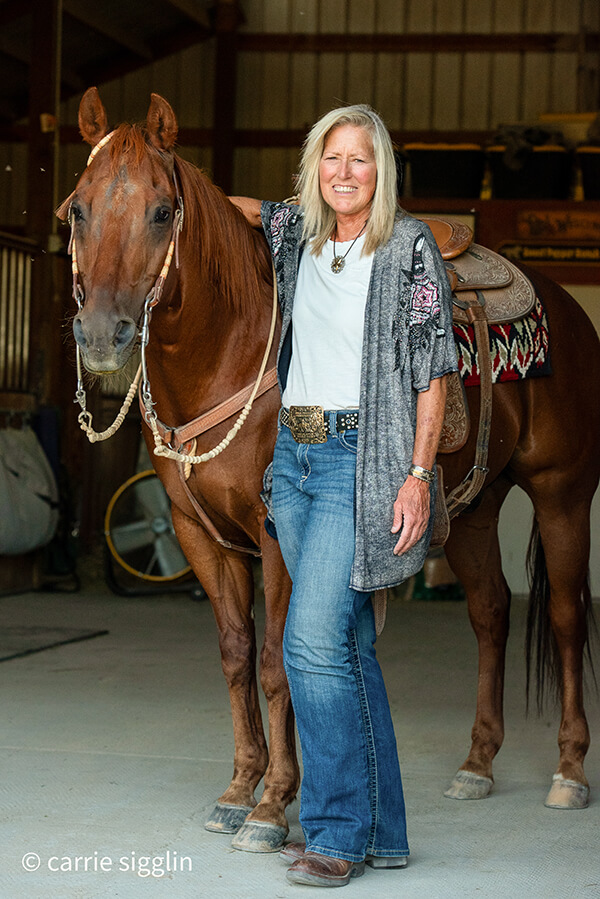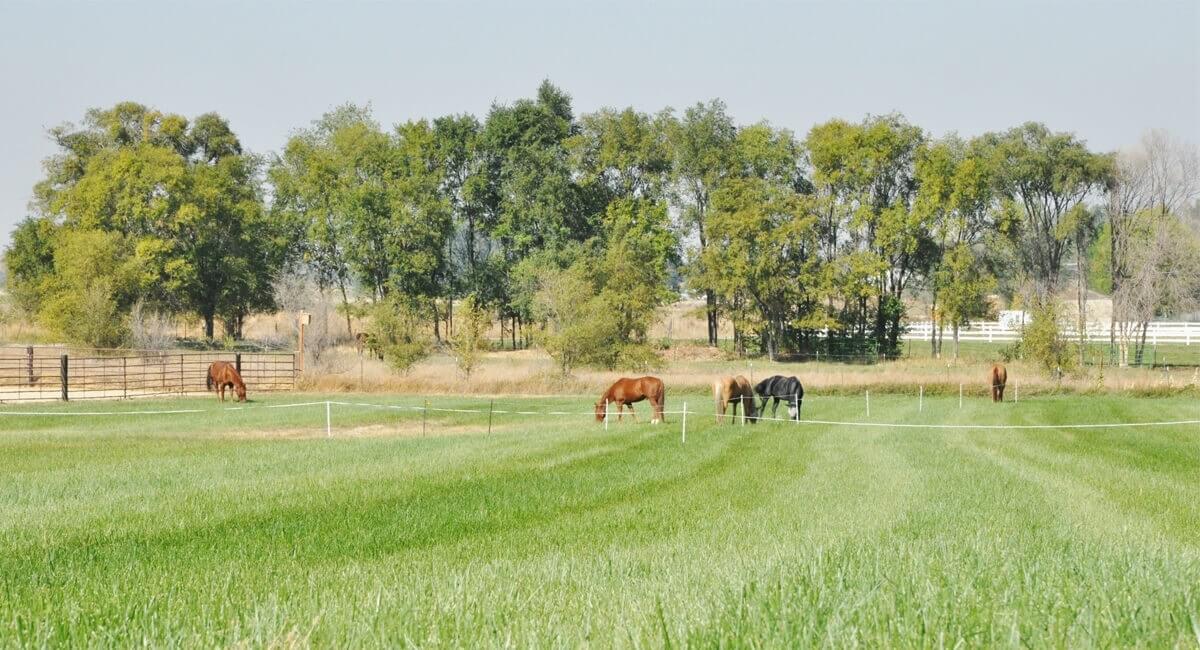Simple Ways to Make a Difference
When it comes to climate change, many feel that things are beyond our control—that we are living on a planet rocketing towards a brave new world of environmental change. While this is true in part, there still are several simple practices we horse owners can do to help make a difference and reduce the effects of climate change.
Two simple techniques will go a long way towards reducing your carbon footprint, the amount of greenhouse gases emitted directly or indirectly into the atmosphere. These practices will also benefit horse health and chore efficiency and will improve your property’s productivity. I’ll also provide alternative options in case you board your horse or don’t own land.
Grow Great Grass
The single most important thing horse owners can do is manage pastures so they are productive and grassy while avoiding overgrazing and bare spots. Through a process called photosynthesis, plants utilize the sun’s energy to draw in carbon dioxide from the atmosphere and manufacture food for themselves. This carbon sequestration by plants plays a crucial role in mitigating climate change by reducing the amount of carbon in the atmosphere. More grass growing in a pasture means more carbon being sequestered. The more horse and livestock owners with grassy pastures, the more hope there is for reducing the effects of climate change.
Poor pasture management among horse and livestock owners contributes to worsening climate change conditions. Overgrazed pastures expose bare, darker soil which absorbs sunlight, thereby making the ground hotter, drier, and dustier. Poor pasture management also means reduced quality and quantity of grass, increased soil erosion, nitrogen runoff (from manure and urine), compaction, less water absorption, dust, and more weeds. All of that contributes to worsening climatic conditions.
Reduced pasture productivity also increases feed costs and potentially increases vet bills if horses eat toxic weeds or have health issues related to increased insect or dust exposure.
And if you don’t have pasture or you board your horse, you can still do your part to sequester carbon from the atmosphere by planting a (native) tree or shrub at your home or perhaps in a nearby park. The benefit of native plants is that they require less water and no herbicides or pesticides because they are adapted to local growing conditions.
You can also create a garden at home. All plants are helpful; they are the lungs of our planet, reducing the amount of carbon in the atmosphere.
Compost!
If you aren’t already doing so, begin composting your horse’s manure. Horses produce 50 pounds of manure per horse per day. Add used bedding and spent hay to that and you’re dealing with a sizable amount of daily stall waste. Composting this will reduce that volume by about 50%. Plus, it provides you with a free, easy, and very valuable soil amendment that locks in soil moisture, stimulates biological activity in soil, adds nutrients, suppresses plant disease, and helps grow healthier plants—and pastures! Applying compost to pastures will help hold in soil moisture, getting pastures through droughty times.
There are other beneficial options for composting, even if you don’t have pasture. You can offer a supply of compost to gardening neighbors or friends, or you can apply it to your garden or lawn.
Addressing climate change isn’t just something that non-horsey people do, it’s something we each can do in our own ways. We are all part of the problem as well as potentially being part of the solution. Every little bit helps and it’s the little things that are going to make the big difference in the end.
See this article in the July 2024 online edition:
July 2024

Alayne Blickle began in the 1990’s as a pioneer in water conservation and natural resources conservation by creating the entrepreneurial consulting business, Horses for Clean Water, an award-winning internationally acclaimed education program that looks for horse-healthy, nature-based solutions to land management challenges. She continues this work today partnering with agencies, organizations, and horse owners throughout North America and worldwide. She is a regularly contributing writer and photojournalist to several equine publications.
Alayne lives with her horse trainer husband, Matt Livengood, in southwestern Idaho where they raise and train AQHA horses and mustangs on their eco-friendly horse ranch. Contact her through the Horses for Clean Water website or through their ranch website Sweet Pepper Ranch.
For more information contact Alayne at [email protected] or 206-909-0225.






